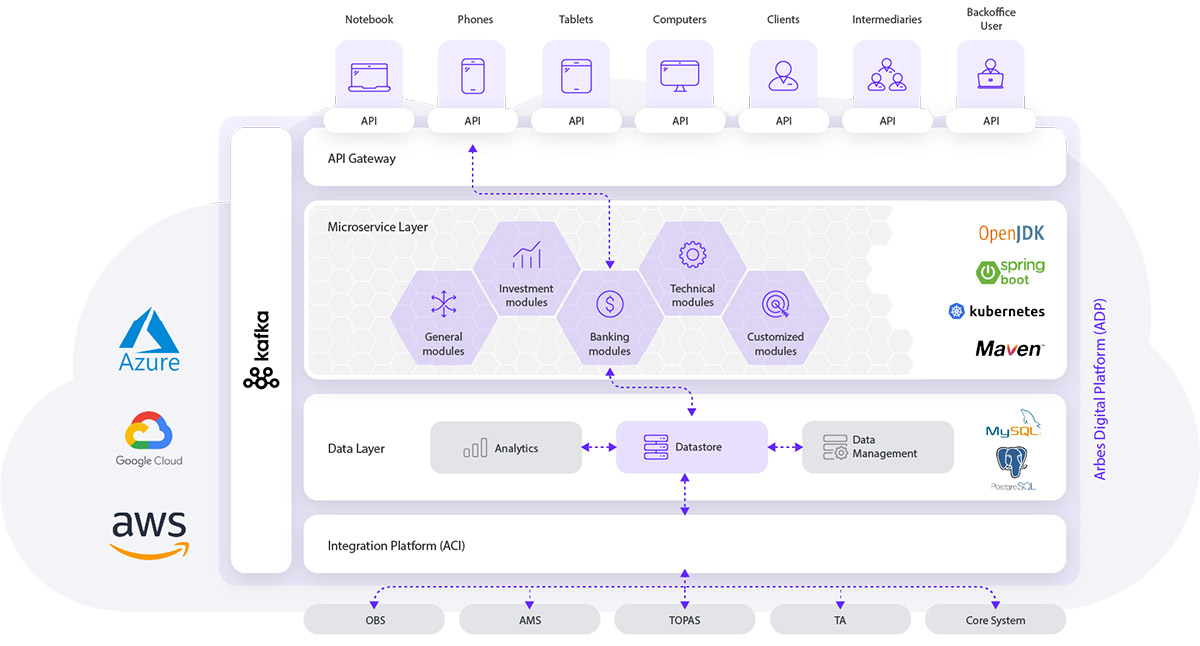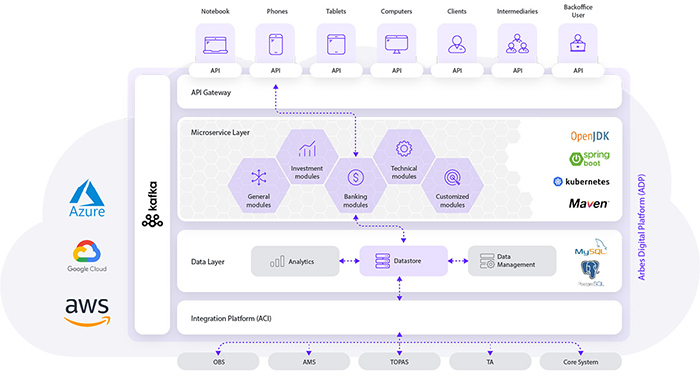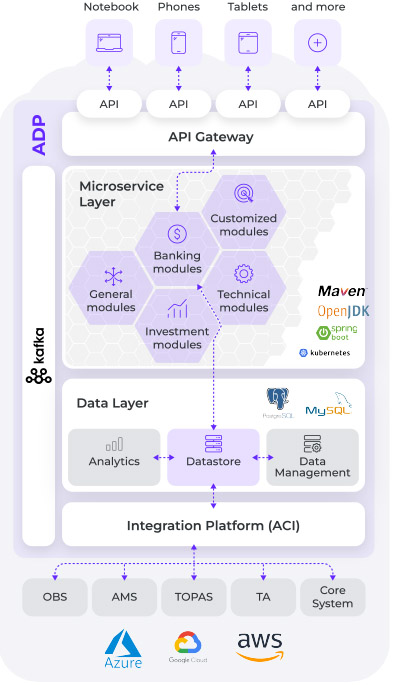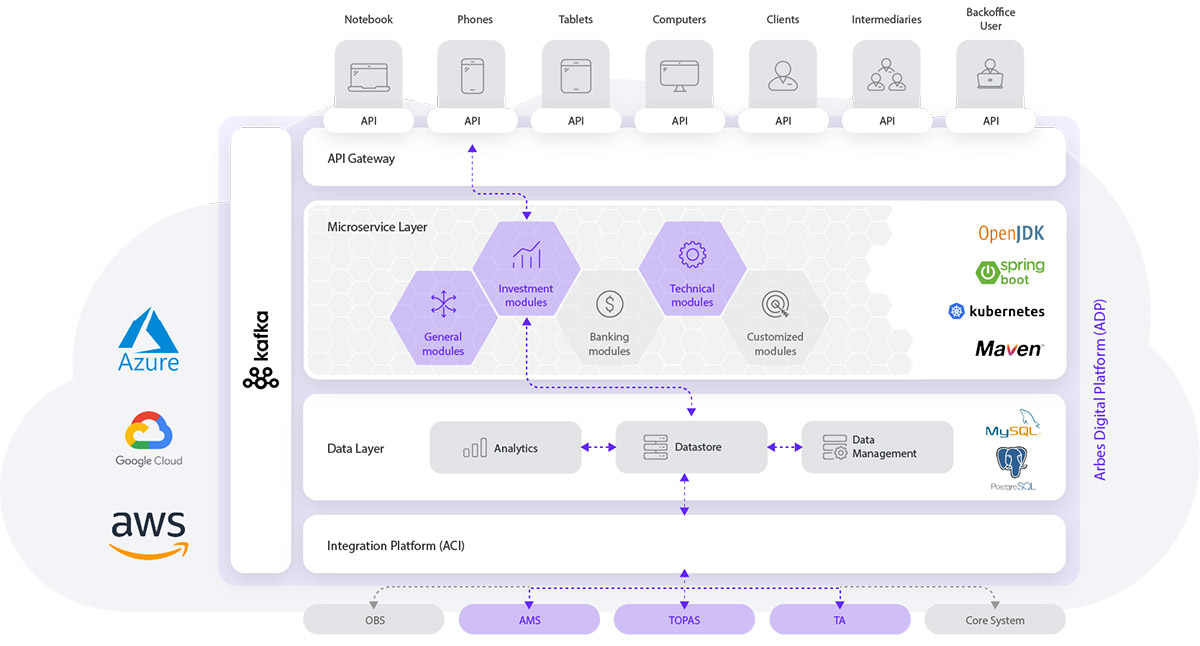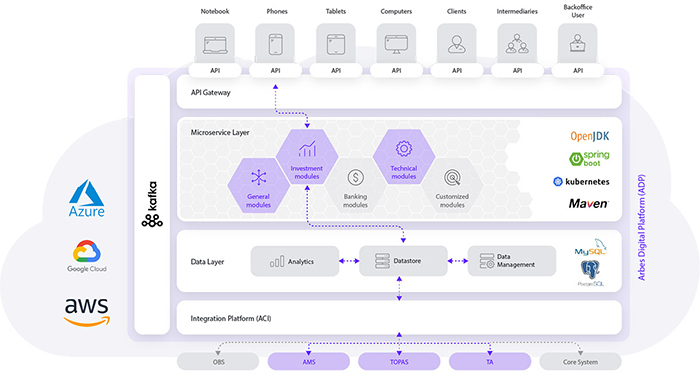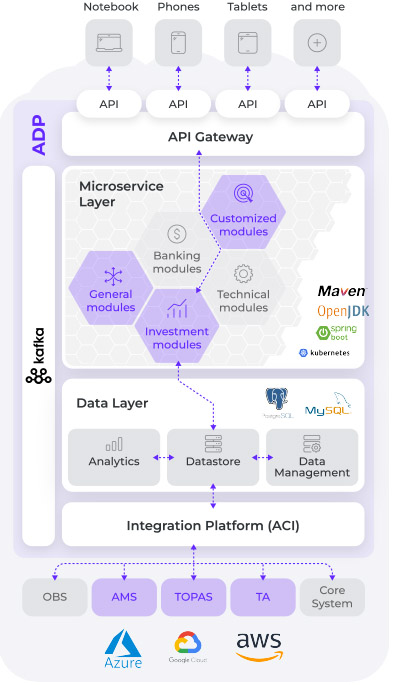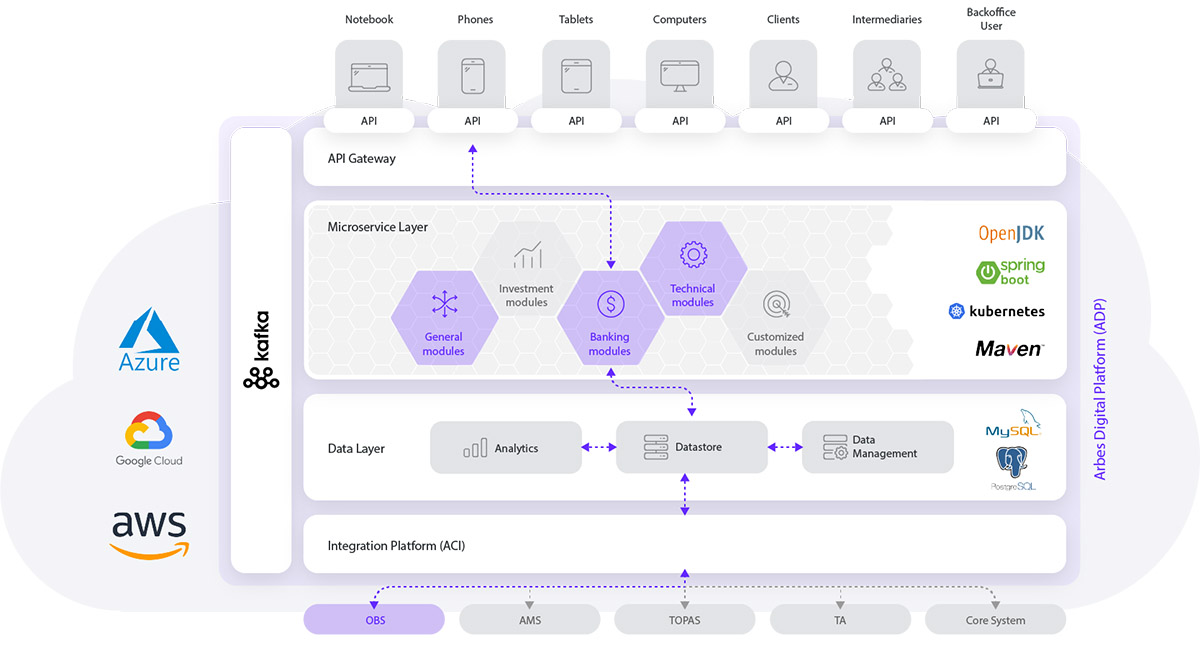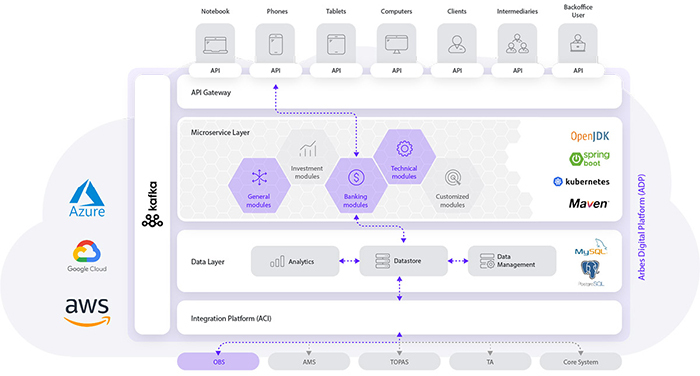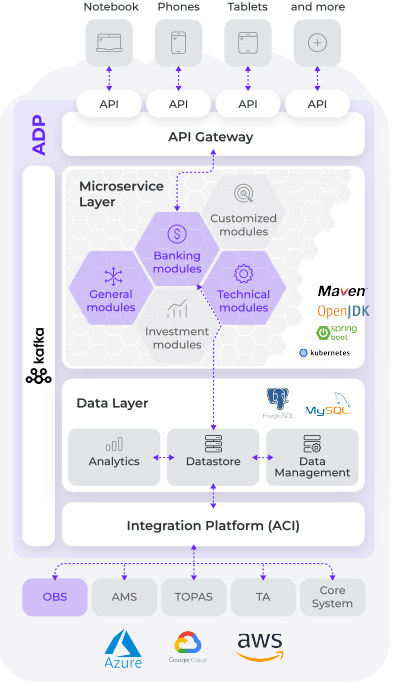How we modernize legacy systems
Using different technologies, we convert large monolithic systems into smaller independent microservice modules built on uniform principles and platforms. Each module handles a specific business agenda or operational area.
Microservice modules can exist independently or work together. This approach has proven successful for us in upgrading our own solutions. Incremental modularization makes it easier to replace legacy systems without the high risks associated with replacing entire systems at once. We use the ARBES DIGITAL PLATFORM tool we developed to modernize legacy systems.
ARBES DIGITAL PLATFORM, ADP for short, is a universal orchestration and integration platform containing microservice modules that support specific business agendas and platforms. It is based on shared principles for software design and implementation, using a set of unified tools and opensource technologies to do so. It is easily deployable in any environment or cloud.
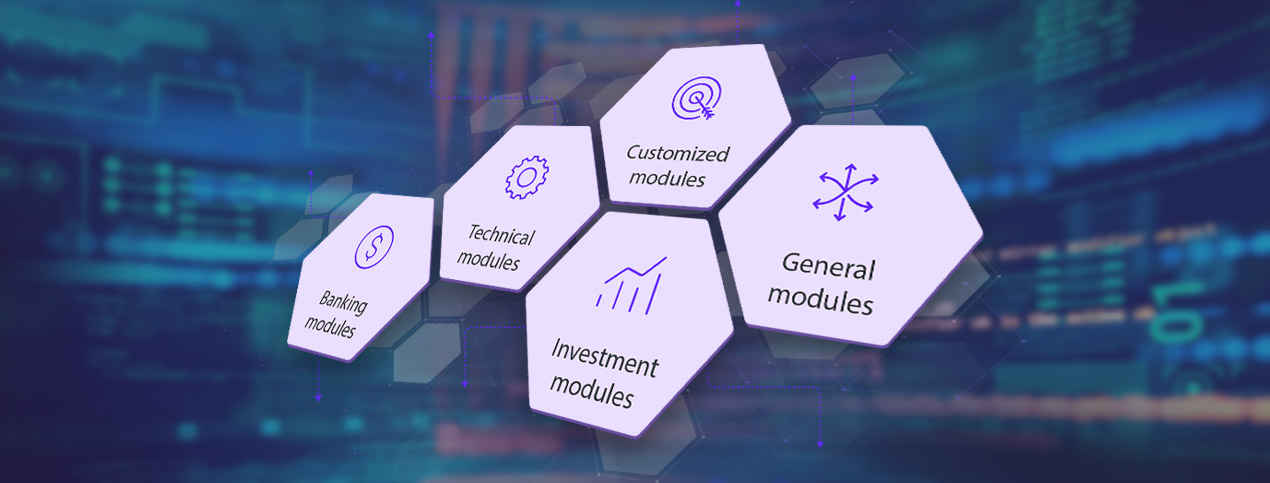
How can ADP help your business?
- We provide support and universal secure APIs for any type of front-end application or for your partners.
- ADP allows products and services to be parameterized by ordinary users without the need for programming or coding.
- Natively, it also supports multitenancy, i.e. serving multiple entities from one enterprise group at the same time.
- Above all, it serves specific business agendas using its easy-to-deploy modules.
How can ADP help your IT?
- It integrates any existing legacy systems with frontends, orchestrates business processes across various systems and provides its own monitoring, logging, auditing and security.
- It provides backend functionalities that may be lacking for a specific area – microservice modules lighten the load on existing legacy applications.
- Creates an opportunity to get rid of dependence on vendors for these systems.
- It allows for more flexible deployment of new technologies, both in the client environment and in any cloud environment.
Which ADP modules will you use?
- Universal modules can be used in any type of business. For example, you can identify clients remotely, perform AML checks, manage fees and commissions and set risk limits.
- Banking modules naturally support banking services, for example, such as Payment Services, Collateral Management as well as Payment Cards.
- Investment modules are designed for securities traders, investment companies, asset managers or custodians, which include the Product Finder or Investment Questionnaire modules.
- Technical modules are the basis for administration, monitoring and auditing of the ADP platform = We also create customized modules according to the specific customer. requirements.
General Architectural ADP Model
General Architectural ADP Model Technologically speaking, ADP is a set of key principles and approaches to software design and implementation. It creates a highly coherent roadmap for the design, development, implementation and operation of a modern application/information system.
The ADP Framework is a collection of libraries, tools and processes. The Framework contains an ever- growing repository of fully compatible, reusable components combined with highly efficient tools, all relevant guidelines and a development process, giving you the ability to quickly build and run applications without compromising quality and long-term maintainability.
The ADP microservice module represents a set of functionalities related to a specific business domain/agenda, e.g. sales commissions.
The following diagram provides a general architectural model of ADP.
ADP's Technological Principles
- Simplification and acceleration of system integration: microservice architecture, modularization, even-based orchestration, standardized APIs.
- Technological independence from cloud and database platforms.
- Easy deployment of new services and changes: containerization and automation of deployment of new versions on your own infrastructure or any cloud platform.

ADP Microservice Module Features
- Every microservice is a Spring Boot app, Java 11 and MAven
- Designed, developed, tested and deployed completely independently of other services
- 100% cloud native
- Multi-module application, running as a standalone JAR in a Kubernetes container
- delivered in an agile manner
- Services a unique business domain/purpose
- Contains its own database
- Every service publishes its data for analytical and other purposes
- Built from ADP components, platforms and technologies
- Inherits properties from the parent Maven ADP
- Uses the ADP config plugin to cover the configuration process
- Uses the ADP starter created for a specific customer
- Based on the REST API definition, written in Swagger, OpenAPI 3.0
Investments Modules
Investment modules are designed for securities traders, investment companies, asset managers or custodians, and include the Product Finder or Investment Questionnaire modules.

It handles the administration of the investment questionnaire and its evaluation.

The module evaluates the consistency of the given security with the client's investment profile.
Banking Modules
Banking modules of course support banking services, for example, Payments, Collateral Management as well as Payment Cards.

The module enables two-way communication with the Clearing Centre of the Czech National Bank. It supports transmission and receipt of data files (batches) with payment transactions.
General Modules
You can find a use for these universal modules in any type of business. For example, you can identify clients remotely, perform AML checks, manage fees and commissions and set risk limits, etc.

It covers a set of actions for digital onboarding of a client in order to execute a contract for the sale of investment products.

The AML module checks the client's banking and investment transactions according to defined rules, including the approval workflow for suspicious transactions.
Technical Modules
The technical modules are the basis for managing, monitoring and auditing the ADP platform.

It offers a set of basic Identity Management, auditing, logging and system monitoring functionalities within the platform.
Customized Modules
We can create customized modules for you according to your specific requirements.

Creating a module according to the customer's requirements means compliance with the rules for microservice architecture in addition to the development of a specific solution. Naturally, a documented API interface is a matter of course.
Want to learn more?
Michal Houštecký
CEO
Would you like more information about the product? Please contact us. We're happy to help.


We are hiring in the following areas
See if we have a job opening in this area suitable for you.

